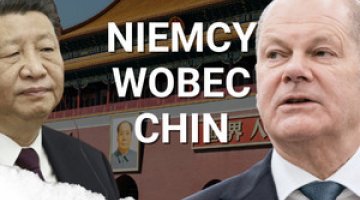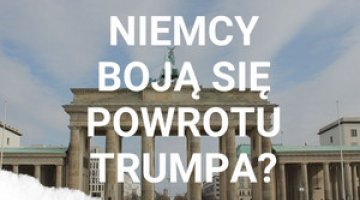More engagement? German security policy of the CDU/CSU-SPD coalition
At the Munich Security Conference (31 January – 2 February) German representatives (the foreign minister, defence minister, president) gave speeches widely deemed to be a declaration of a new direction and increased military involvement for Germany in international security policy. Despite this shift in the rhetoric, major changes should not be expected. The security policy of the new grand coalition will above all be aimed at regaining the reputation of an active actor in international affairs – following the stark criticism of German foreign and security policy in the last four years. The Federal Foreign Office will therefore undertake more political initiatives aimed at preventing crises and conflicts and resolving the existing ones. No substantial increase in Germany's military engagement in crisis management should be expected – it would not be compatible with Germany's interests or strategic culture. The new government will also seek to influence the discussion about the future of military co-operation in Europe. It will push for its Framework Nation Concept presented in 2013, which is aimed at strengthening Germany politically, militarily and industrially in comparison with France and the UK. From the point of view of small and medium-sized countries from Northern and Central Europe, however, the concept is highly controversial.
New rhetoric and priorities of the Social Democratic foreign minister
It is above all the new foreign minister in the CDU/CSU-SPD government, Frank-Walter Steinmeier (SPD), who is responsible for the new rhetoric about Germany's increased involvement in European and international security policy. The offensive launched by the new head of the Federal Foreign Office should be looked at on several levels. After four years with Guido Westerwelle (FDP) at the helm of the ministry, Steinmeier finds himself confronted with his office considerably weakened, with the Christian Democratic Chancellery having taken over much of its competences. Steinmeier is ambitious and experienced enough to seek to stake out and enhance the position of the Federal Foreign Office in this term in office by means of increased activity in European and international security policy. He will also show determination in strengthening the position of Germany as an actor in international affairs and will move away from his predecessor's legacy. Westerwelle was criticised both in Germany and abroad for being too passive and for failing to take into account Germany’s closest allies – Germany's stance during the conflict in Libya symbolised this. Steinmeier is also striving to improve Franco-German relations which are seen by the SPD as a driving force behind European integration. In recent years both countries have displayed significant differences in opinion not only in foreign and security policy (i.e. responses to crises in the EU's neighbourhood) but also in the areas of the economy and energy (reform of the eurozone or the German Energiewende). The joint Franco-German statement, issued on 21 January by the foreign ministers, regarding the coordination of positions before the General and Foreign Affairs Councils, co-operation in crisis prevention, and joint visits to countries in the EU’s neighbourhood became the symbol of the “new” chapter of bilateral co-operation in foreign policy. Steinmeier's announcement that Germany would be increasing its military engagement in support of France in Africa, with speculation that the German-French Brigade may be sent abroad, also drew a lot of media attention.
The Chancellery as guarantor of a moderate course
Despite this shift in the rhetoric it should not be expected that there will be major changes in German security policy which will result in increased military engagement abroad, since it is Chancellor Angela Merkel and the Chancellery who play the decisive role in setting the course. It is currently difficult to imagine a Franco-German tandem that would actively co-operate and share responsibility for military crisis management for example in Africa. Following the conflicts in Libya, Syria and Mali, the Christian Democratic ruling elite have formed the conviction that France is seeking to instrumentalise EU and NATO structures in order to achieve its own national goals and that increased activity in crisis management serves France as a counterweight to its diminishing political and economic influence in the EU. Thus, in recent years Germany has ceased to feel committed to supporting military interventions of its closest allies which are driven by their own national priorities. Furthermore, the core of both the SPD and CSU will not give the green light to substantially extend German military involvement abroad. Furthermore, this is not supported by German public opinion – according to a survey conducted by ZDF at the end of January, 62% of those surveyed were against enhanced engagement in international crisis management operations for the Bundeswehr, with 32% in support.
In security policy, therefore, the priority of the grand coalition will be to seek to enhance its political activity while minimally increasing its military involvement abroad. The aim is to regain the reputation of being an active actor in European and international politics. The Federal Foreign Office will undertake more political initiatives aimed at preventing crises and conflicts and resolving the existing ones. It will make use mainly of instruments ranging from diplomacy, development assistance, economic and financial aid, and will support the reform of security and justice sectors. The priority will be to develop co-operation with regional partners and organisations and support their capacity building in crisis prevention and crisis management as well as post-conflict reconstruction. Germany will also eagerly promote its preventive comprehensive approach internationally. Military engagement will remain an option of last resort for Germany. Germans consider military interventions ineffective and costly from the human and material point of view as well as being incompatible with Germany’s interests and strategic culture. The new government will therefore only slightly increase its military engagement in EU operations. The announcements indicate that the scale will be largely insignificant. The limit of German troops in the EUTM Mali training mission will be extended from 180 (currently in fact approximately 100 soldiers) to 250. The German contribution to the future EU mission in the Central African Republic (CAR) will probably be confined mainly to air transport – the deployment of combat troops has been ruled out. Germany will still refrain from supporting independent French operations. It did not do this in Mali in 2013 and it is currently refraining from it in the CAR, waiting instead for the establishment of an EU operation.
German concepts for military co-operation in Europe
At the security conference in Munich, German politicians also called for a larger German contribution to the debate over the future of military co-operation in Europe. In this context Germany will push for its initiative already presented in 2013 within NATO – the Framework Nation Concept, as the new defence minister Ursula von der Leyen (CDU) declared. According to this concept, military capabilities within NATO would be developed in multinational clusters. Within these clusters a larger framework nation (for example Germany, France, the UK) would develop its capabilities in co-operation and integration with smaller states. The framework nation would maintain a broad spectrum of capabilities and provide smaller partners with e.g. command and control, logistics, surveillance, strategic transport to jointly conduct operations of various types. The German initiative, aimed at influencing the thinking on how to organise military co-operation across Europe, stems from the conviction that it is necessary to strengthen Germany both politically and militarily. Firstly, in the face of the Franco-British co-operation in the area of security and defence. Secondly, in the face of the reform of the Bundeswehr, as a result of which the operational capabilities of the German Armed Forces to conduct longer military operations need to be enhanced and complemented, preferably by smaller allies. Furthermore, the implementation of the Framework Nation Concept would increase the use of the German military infrastructure by the allies and would sustain certain capacities of the arms industry within a ‘German’ cluster while taking into account, above all, the interests of the framework nation.
For the time being the concept is being discussed in NATO. Even should the German idea fail to be adopted within NATO, the present German government will wish to gradually implement it (in a less systematic and organised form) within the EU or in bilateral relations, with the Netherlands and the countries of Northern and Central Europe. The German Framework Nation Concept is, however, controversial from the point of view of small and medium-sized countries since, in the long term, it may make them politically, militarily and industrially dependent on one large partner. Such far-reaching military co-operation and integration with Germany, which perceives threats and challenges to its own and to regional security in a different manner than its neighbours from Northern and Central Europe, may have serious consequences for the latter.




